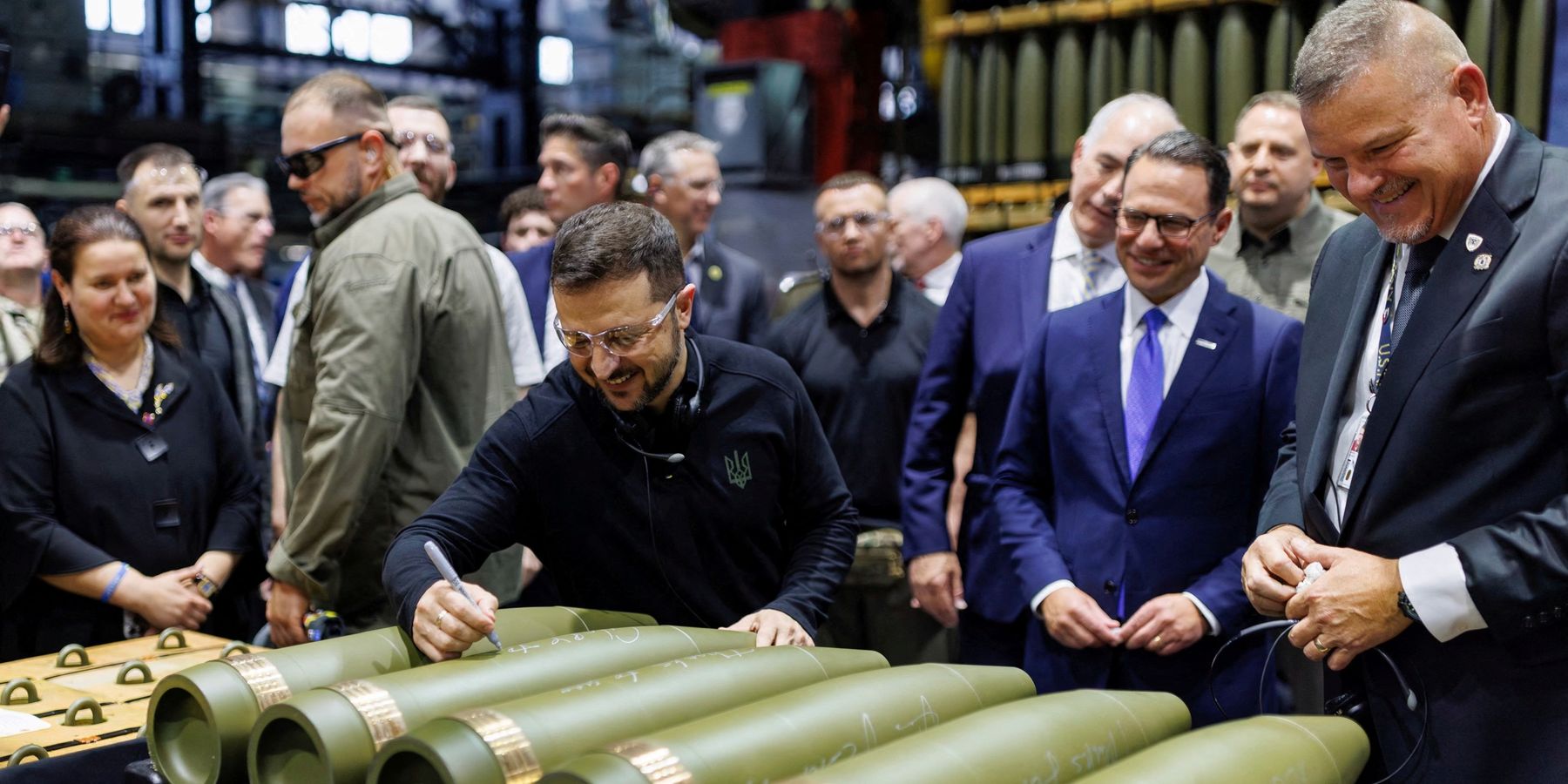Ukrainian President Volodymyr Zelensky’s trip to Pennsylvania on the eve of the U.N. General Assembly elicited a medley of reactions straddling the ideological spectrum.
The commentary, which encompasses everything from ebullient praise to pointed criticism, is entangled with a number of broader phenomena: namely, Kyiv’s continued prosecution of the war in the face of what even its most ardent allies acknowledge to be harsh battlefield realities, Zelensky’s increasingly beleaguered political position at home and abroad, the U.S. presidential election, and state politics. It is no surprise, given these disparate strands of inquiry, that Zelensky’s trip has become something of a rorschach test for how Americans view U.S. involvement in the Ukraine war.
Yet it is possible to rescue something approaching a lucid assessment from this muddled affair. It starts, as all dispassionate inquiries should, with a precis of the basic facts of the matter. Kyiv, as everyone up to and including President Zelensky acknowledges, overwhelmingly relies on U.S. military, financial, and diplomatic support to sustain its war effort. The Biden administration not only committed itself to the indefinite provision of this support but Vice President Kamala Harris has made a campaign issue out of it, casting former President Donald Trump’s desire to bring the war to a negotiated conclusion as a form of surrender to Vladimir Putin presaging Russia’s subsequent invasion of countries on NATO’s eastern flank.
These effusions have seeped into battleground state politics, with Harris warning Polish-Americans in Pennsylvania that deviation from the current Western approach to Ukraine invites a Russian assault on Poland. It is in this politically-tinged context that Pennsylvania’s Democratic governor, Josh Shapiro, as well as Sen. Bob Casey (D-Pa.) and Rep. Matt Cartwright (D-Pa.) — both of them running for re-election — met with Zelensky and Ukraine’s ambassador to the U.S. Oksana Markarova at the Scranton Army Ammunition Plant six weeks out from the election, proclaiming support for the administration’s Ukraine policy as Shapiro autographed freshly-produced artillery shells to warm applause.
Let us recapitulate. A foreign head of state who relies on and is actively courting continued American support to sustain his nation’s war effort was flown out on a military transport aircraft to a Scranton munitions plant that at least partially benefits from continuation of military aid to Ukraine, located in a crucial battleground state, to meet with the governor and local politicians running for reelection.
Under any circumstances, this kind of collaboration between foreign leaders, the federal government, and state politicians blurs the lines of domestic politics and foreign policy in a way that should make Americans uncomfortable regardless of the specificities surrounding the Ukraine conflict. It is especially concerning when this collaboration is officiated in the final inning of an election season where Ukraine is one of the issues being presented to voters as a potential source of contrast between the two campaigns, with Zelensky simultaneously echoing Harris campaign messaging in denouncing GOP vice presidential candidate J.D. Vance’s views on how to end the war as too “radical” and ignorant of history.
Any sort of creeping balkanization of Ukraine policy along partisan lines is not only obviously detrimental to U.S. security interests, but, in the long run, also hurts Kyiv by subjecting it, even by its leaders’ own volition, to the vicissitudes of domestic politics.
- Congress: Let Ukraine hit more targets inside Russia with US weapons ›
- No magic US weapon left for offensive Ukraine victory ›
















